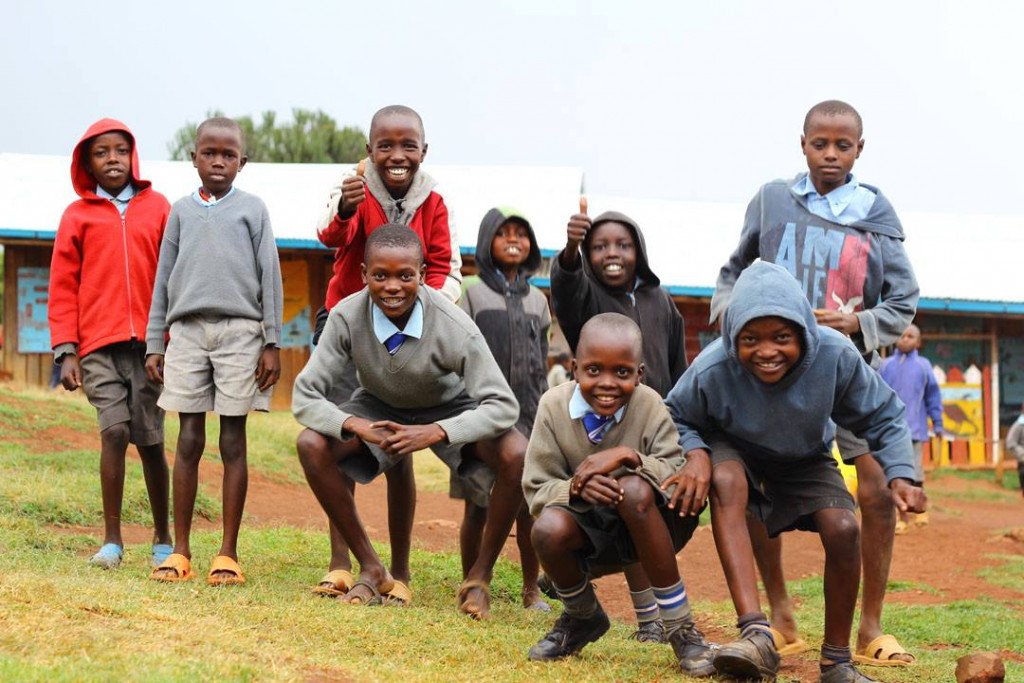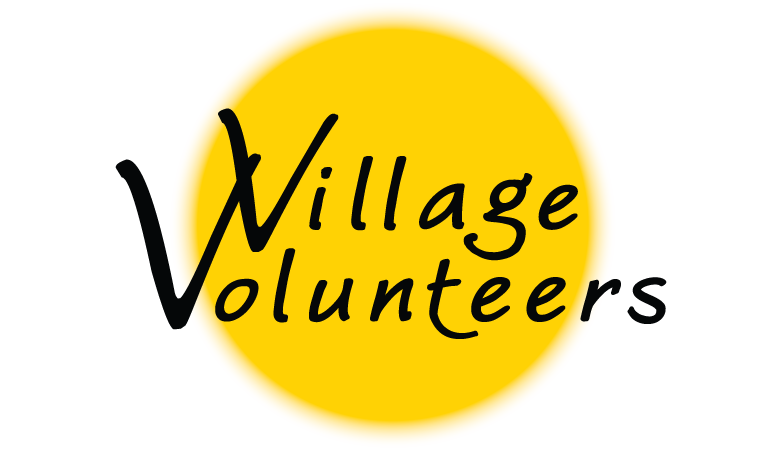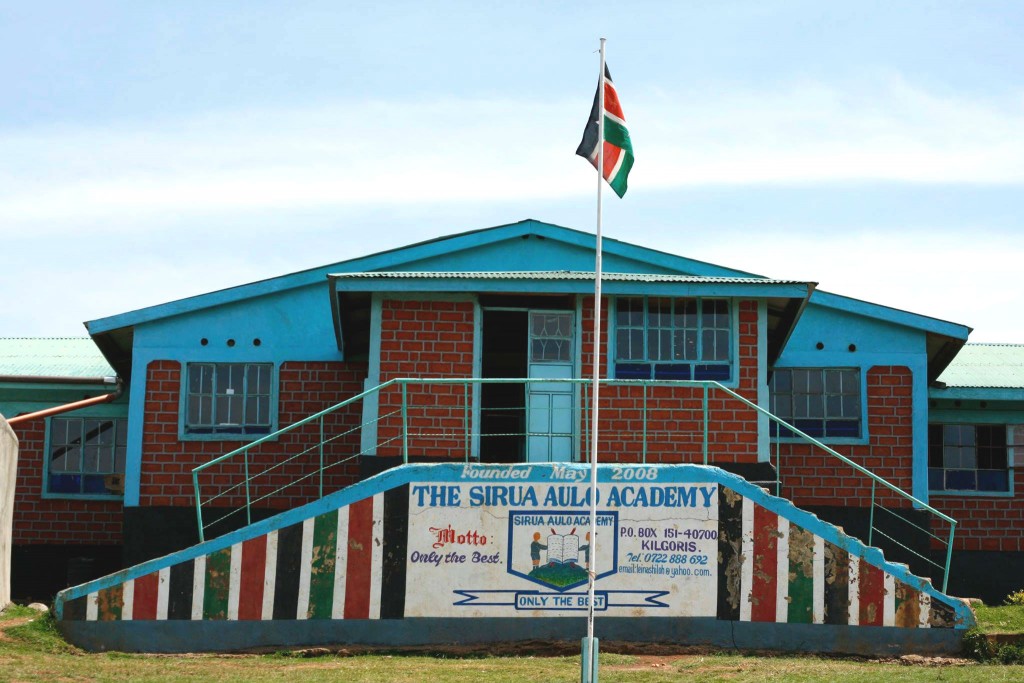By Emmanuel Leina Tasur
John Dewey said “Education is not preparation for life, education is life itself.” How true that is. I strongly believe that education in whatever form is a lifelong quest and no one should ever be tired of learning until their day here ends. This is the story of my lifelong quest for education.
I began formal schooling in a not-so-formal way. My community, the Maasai, loves its culture and way of life, but is also trapped by a need to portray itself to the world in ways that tourists like to see. Maasailand lags behind to a great degree due to the Maasai people’s resistance to formal schooling. But my father being the administrative chief and implementer of government policy in our community ensured that all his children attended school. Until very recently, many children in the Maasai community had no access to quality education. And so, I attended my first day of school by walking to the classroom with my herding sticks, with a single scrap of clothing over my shoulders, and no pants or shoes. This was very normal in early 1980s. Schools used to be huge distances apart and depending on the season, our animal herds could be very far from the nearest school. The closest we lived to a nearby school was 7km away and we were only allowed to attend school on days when it was not our turn to herd cattle, goats and sheep. Our herds were the primary source of wealth, status and well-being in the society and getting a formal education was a secondary aspect of our lives. But within a few years, school took priority and families that took their children to school became proud leaders of the community. This is true even today. There is now more appreciation of education of both boys and girls, but we still have a long way to go.
I remember that I learnt how to write in school by scribbling the alphabet with my fingers in the dirt of the classroom floor. In our school, once we were able to write a few letters and numbers, only then were we given a slate and a piece of chalk. The real graduation came when we were finally given a pencil and an exercise book; this took some of us around 6 months to a year. For me the turning point came when a missionary from the United States named Anderson handed us small Gideon’s Bibles in class. This lit a fire in me and I wanted to read to understand the Bible.
After undergoing the mandatory circumcision ceremony that boys go through in Maasailand, I requested my father to send me to a boarding school, not so much for a proper education but for the need of shoes which all boarding school children got as part of their uniform. My toes were totally misshaped by the stones and rocks I had to cross while running to school barefoot – I have the scars to date! In boarding school I attended lessons in nice classrooms, the teachers attended all the lessons without fail and never got late coming to school. This thrilled me and made me thirstier for knowledge, and by Grade 5 I was able to read the Gideons Bible.
It was not until high school years that a turning point in my life began. I attended a school in the Kericho region of the country – an all-boys high school. At the time, there were 600 boys and only 2 were from Maasailand. I began questioning a system that denied so many of my people a proper grounding in education. I excelled at school, and for two years I was the school captain, having the honor to attend staff meetings as a leader of the rest of the boys. At that time I determined in my soul that I will build a school for Maasai children and their neighbors.
I think that the education process is either won or lost in the formative years of elementary school. In my experience, the Kenyan education system that we inherited from the British is extremely test-based and is focused on the elimination of a large portion of the population. Nearly 900,000 children give the elementary exam per year, and only 400,000 of these will make it to the end of high school. Two major examinations administered at the end of elementary years literally determine the futures for 13-year-olds, and the ultimate exam at the end of high school excludes multitudes from the discourse of running the affairs of this nation. It is the backdrop of this system that our region is tested. Our education system itself denies a majority of our children a chance to attend reputable high schools.
The marginalization of the Maasai as a people began long ago when Kenya was a British colony. The colonists created Southern Reserves and the Northern Reserves which were kept away from progressive development that was happening in the rest of the country (like the setting-up of a robust educational system and hospital infrastructure). Maasailand was part of the reserves, and so the region fell behind by almost 50 years when compared to other sections of the country. After Kenyan independence, too, successive governments continued the trend of exclusion with such false claims as the Maasai people’s interest in retaining their culture over educating their children, and that the Maasai people do not deserve good roads as they fear that their herds will disappear. Many schools in Maasailand were started under a tree, which then moved to dirt/timber structures. This is the case till date, with a handful of teachers for hundreds of children.
Where my community is settled, in Kilgoris, our partnership with Village Volunteers has changed everything around here. I began sharing my passion and vision to build a school with every volunteer Village Volunteers sent our way. I enabled them to see a Maasai generation that is being lost, to see how many of the people here will remain permanently poor and the cyclic nature of the system that keeps them that way. I began sharing my heart out – that the only way we can break the cycle of poverty is through educating our children. I rooted for a private school with a direct focus on empowering children who are orphans and from extremely poor families. I wanted our school to be a center for excellence. With early support from missionary friends and Village Volunteers, the Sirua Aulo Academy opened its doors on May 8, 2008, enrolling 46 students, 30 of them being orphans or children from vulnerable backgrounds.
Thanks to hard work and the support of several, Sirua Aulo Academy has been a huge success. But above all, the success has come from our mission which is our driving force: “To provide an opportunity for God to be glorified through academic excellence, to create an environment where all children thrive, to instill a solid foundation in every child, and to be the centerpiece of a strong educated community.” Our students and staff have provided our school’s many guiding principles, and here are a few:
- Help every student reach his/her full potential;
- Provide a safe, respectful environment for spiritual, mental and physical development;
- Encourage cooperation and collaboration among students and staff;
- Encourage children to process and proceed at their own pace;
- Ensure a fair, equal and non-discriminative environment which does not always mean treating everyone exactly the same;
- Incorporate a strong foundation in literacy;
- Ensure the development of critical thinking and problem-solving skills. Problems often have more than one solution-allowing children to explore different solutions;
- Support Children positively while learning through the mistakes they make;
- Foster creativity in all members of SAA – Students and staff alike;
- Never speak when someone else is talking, no matter who it is;
- Never make fun of what someone says; laugh at a remark only when you are sure the speaker intends it to be funny;
- The educational process at SAA shall be rooted in freedom, and its goal should be the education of free individuals;
- The SAA shall prepare children to embrace cultural, ethnic and tribal diversity, encouraging all to rise above any perceived barrier to friendship; (These include race, gender, class, religion, or any other difference)
- Encourage staff and students to maximize the utilization of resources available;
- Attract and retain the best educators, while offering Continuing Education opportunities to staff to continue their development.
As a school we challenge the norm and implement progressive programs – many of our children are with disabilities who were hidden away due to cultural underpinnings. Together with past volunteers, we have successfully integrated them within our school programs. We began implementing an I.E.P program in our school, especially geared towards our average learners to ensure that we take everyone along in our learning journey.
I consider myself a facilitator on many fronts, and I encouraged our school’s departments to come-up with their own missions and to try and achieve the. Some of the missions that drive our departments are:
- Guidance and Counseling: “To offer excellent and faithful guidance and counseling service to our students to help them understand themselves, their environment and cope with the same.”
- English and Library Service: “To ensure continued excellent performance by students, impart essential skills i.e. reading, writing, listening and speaking that enhances students’ interactions among themselves, with their teachers and community.”
- Mathematics Department: “To ignite the right curiosity in our students, the right choice of attitude, the right mastery of content and concepts, the right reading culture and above all, the desire to achieve placement in their future careers, eliminate fear and anxiety.”
- Humanities Department: “To inculcate in our learners right information and make them have a wholesome approach towards life in terms of current issues and develop positive attitude towards academic excellence.”
- Science Department: “To provide a conducive environment for learners to be innovative, creative and embrace experimentation as a core element of science.”
And such is the quest for excellence that is so exciting yet so demanding.
We also incorporated a non-violent form of discipline in our quest to handle children in a friendly manner. Here are some sections of our non-violence policy:
“It has been established by numerous studies worldwide that physical and psychological violence perpetrated upon children is NOT IN ANY WAY an effective way to modify children’s behavior. In fact, when a child’s negative behavior is met with physical punishment; the child is likely to act out the violence on another. Children who grow up in violence will, as adults, respond to stress with violence. Children who are punished in a school environment will learn out of fear rather than the love of learning.
At Sirua Aulo Academy we wish to educate our students to become not only academically excellent but to be compassionate, caring and progressive human beings. Physical violence or punishment is not an educated way of modifying our students’ behavior. Children model the behavior that they are treated with.
When children are treated with thoughtful respect and dignity, even when their behavior is not positive, they will try harder to respond with proper behavior. Fear is not a tool of a good teacher. Pain is not a tool of a good teacher. COMMUNICATION, ASSISTANCE, SUPPORT AND UNDERSTANDING ARE THE TOOLS WE MANDATE FOR OUR GOOD TEACHERS.
It is the policy of Sirua Aulo Academy that NO physical violence such as caning, slapping, pinching to any other form of physical punishment will be used by any teacher or any staff member towards students at our school.
It is the policy of Sirua Aulo that any staff member, volunteer, or any adult associated with the School in any way may be dismissed from his or her position at the school immediately if it is learned that he or she has touched a student in any manner other that a gentle and appropriate way.”
One may argue that societies that have invested heavily on education have reaped a huge harvest in developmental terms. In Kenya, we like quoting in stack terms how we were at the same level of development with the Asian Tigers of Singapore, South Korea and Malaysia. But we forget that such countries took a deliberate attempt at investing in education, research and general human capacity development. A country like Israel is in the middle of the Negev desert, yet they have turned it with the necessary technology into a rich food basket, and their science and technology is being sought globally due to their investment in education.
We need a re-awaking of sorts! I would rather have a quality school than have a huge superhighway going nowhere, for who will buy cars that will be driven on such roads. As a nation, Kenya needs a total mental shift of priorities. We need to invest heavily in our elementary school system, deploy an army of teachers to reduce our student-teacher ratio, remunerate our teachers well, and deploy learning resources to such a high level that we will have one book per child in every classroom. We need to build more labs in our high schools, ensure that free quality access to education is available to all children until 12th grade and deliberately invest in our universities. Roads, and other things we love to call “development” will come naturally as a result of an educated generation. I would rather have a bad road where my community lives as long as there is a quality school. And from our experience at Sirua Aulo Academy I will say this – we get stuck all the time heading to school, yet we give children top-notch education that they can’t exchange with anything else.
 What began as a single school is panning out to be more schools in the region. As I share this, the Sirua Aulo High School is in the works, and another elementary school in a different region from here is in my dreams. In total, my focus is to build 5 elementary schools, 2 high schools and possibly a college. There is a huge hunger for knowledge. As a staff, we also sat down and gave to ourselves several core values that we believed will enable us achieve our goals and mission of the school: truth, creativity, excellence, self-reliance, innovation, quality and relevance, equal opportunity, professionalism, moral integrity, culture of discipline and hard-work, competitiveness, academic freedom, respect for diversity, common sense. These and many more, have brought academic excellence to the Sirua Aulo Academy for 3 consecutive years and many more to come. The school has been able to send many children to national high schools and through the program, and with partnerships spanning oceans to continents. We are blessed to be serving 123 orphans at the moment.
What began as a single school is panning out to be more schools in the region. As I share this, the Sirua Aulo High School is in the works, and another elementary school in a different region from here is in my dreams. In total, my focus is to build 5 elementary schools, 2 high schools and possibly a college. There is a huge hunger for knowledge. As a staff, we also sat down and gave to ourselves several core values that we believed will enable us achieve our goals and mission of the school: truth, creativity, excellence, self-reliance, innovation, quality and relevance, equal opportunity, professionalism, moral integrity, culture of discipline and hard-work, competitiveness, academic freedom, respect for diversity, common sense. These and many more, have brought academic excellence to the Sirua Aulo Academy for 3 consecutive years and many more to come. The school has been able to send many children to national high schools and through the program, and with partnerships spanning oceans to continents. We are blessed to be serving 123 orphans at the moment.
When I walk through the village, I can feel the air pregnant with expectation. In our community, a new story will emerge – a story of optimism and hope, a story where every single child will be given an opportunity to serve and better his/her life. I’m glad for the support around me, and I have hope for this dream and many more to come true in my lifetime.

